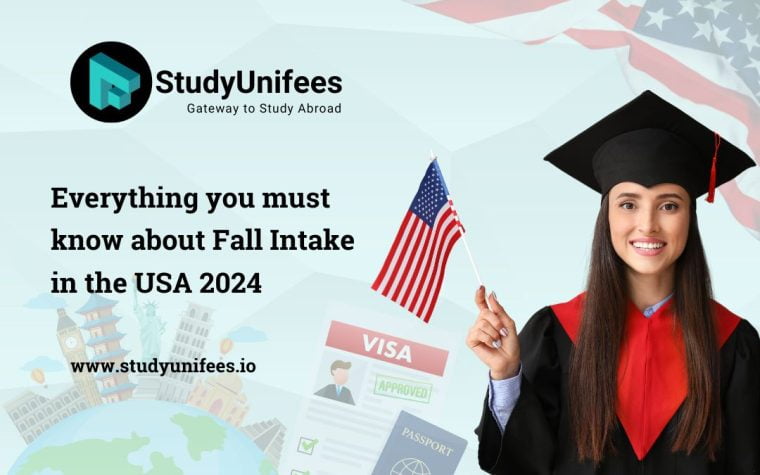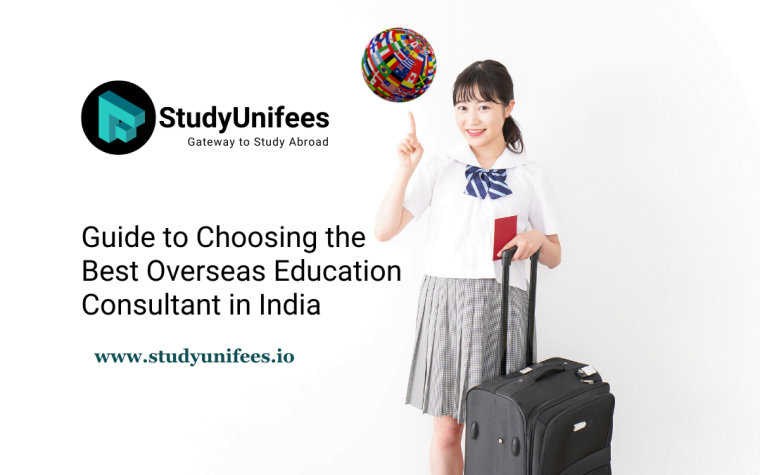Overseas education has become increasingly popular among students in recent years. With globalization and technological advancements, studying abroad allows students to gain a global perspective, experience new cultures, access top-quality education, and enhance their future career prospects. However, planning for overseas education can be a daunting task with many factors to consider, such as choosing the right university, navigating visa processes, managing finances and accommodation arrangements.
A study abroad consultant is a professionally trained individual or agency who assists students in making informed decisions about their overseas education journey. They provide guidance and support throughout the entire process – from selecting universities that best fit a student’s academic goals to helping them secure admission and obtain visas. But aside from these practical aspects of overseas education planning, below are some key reasons why seeking guidance from an expert study consultant is essential:
- In-depth knowledge about various study destinations: A good study consultant will have extensive knowledge about different countries offering higher education opportunities. They can help you identify universities based on your preferred location, budget, and academic requirements within that country.
- Access to comprehensive information: Choosing an overseas destination for studies requires thorough research on various aspects such as courses offered by universities/institutions, cost of living, employment opportunities post-study, etc., which can be overwhelming for students. A professional study consultant assists in gathering this information, streamlining it into manageable chunks, and providing it to.
What is an Overseas Education Consultant?
An Overseas Education Consultant is a professional who offers guidance and support to individuals interested in studying abroad. They play a crucial role in helping students achieve their dream of studying in another country by providing them with the necessary information, resources, and assistance throughout the entire process.
These consultants are well-versed in international education systems and have extensive knowledge about various universities, colleges, courses, and programs offered worldwide. They act as mentors and advisors for students seeking higher education opportunities abroad, helping them make informed decisions about their academic pursuits.
The primary responsibility of an Overseas Education Consultant is to provide personalized counseling services to students based on their individual goals and circumstances. They assess the student’s academic profile, career aspirations, and budget constraints to recommend suitable options that align with their interests. It includes suggesting potential countries or universities that would be a good fit for the student, considering factors like cost of living, job prospects after graduation, cultural compatibility, etc.
An Overseas Education Consultant also assists students with the application process. They guide them through each step – from choosing the right course/program to applying for scholarships or financial aid if needed. These consultants have in-depth knowledge about the application requirements of different universities and can help students prepare all necessary documents such as transcripts, letters of recommendation, statements of purpose (SOP), etc.
Aside from academic assistance, an Overseas Education Consultant can also provide practical advice on visa applications, travel arrangements, and accommodation options. Their experience enables them to guide students.
Benefits of seeking guidance from an Overseas Education Consultant
If you’re considering studying abroad, seeking guidance from an Overseas Education Consultant can be incredibly beneficial. These trained professionals have the knowledge and experience to help you navigate the complex planning process for overseas education. Here are some of the key benefits you can expect by seeking guidance from an Overseas Education Consultant:
- Expert Knowledge and Advice:
Overseas Education Consultants are experts in their field and have in-depth knowledge of different universities, courses, programs, and countries. They stay updated with changing admission requirements, visa regulations, and other important information that can significantly impact your study plans. By consulting with them, you can access a wealth of expertise and get valuable insights into making informed decisions regarding your overseas education.
- Personalized Guidance:
One of the biggest advantages of seeking guidance from an Overseas Education Consultant is that they provide personalized counseling as per your individual needs and preferences. They will understand your academic background, interests, career goals, financial constraints, and other factors before suggesting suitable options for you to consider. With their support and guidance, you can find the right course in a preferred university that aligns with your academic aspirations.
- Assistance with University Admissions:
The admission process for universities abroad can be complicated due to varying criteria such as standardized test scores (SAT/ACT/GRE/GMAT), essays or statements of purpose (SOP), letters of recommendation (LORs), transcripts evaluation, and more. An Overseas Education Consultant is well-versed in all these requirements and can guide you through each.
Factors to consider while choosing the best Overseas Education Consultant
Choosing the right Overseas Education Consultant is crucial in successfully planning for your education abroad. These consultants provide valuable guidance and support throughout the entire process of applying to schools, obtaining visas, arranging accommodations, and adjusting to a new country. With so many consulting services available, it can be overwhelming to determine which one is best for you. In this section, we will discuss the important factors to consider while choosing the best Overseas Education Consultant.
1) Reputation and Credentials:
One of the most important factors to consider is the reputation and credentials of the Overseas Education Consultant. It is essential to research their experience in the field and their success rate in placing students in reputed universities or colleges. You can also check reviews and testimonials from previous clients online or ask for referrals from friends or family who have used their services before.
2) Services Offered:
Different Overseas Education Consultants offer various services depending on their expertise and resources. Some may only assist with university applications, while others provide additional services such as visa assistance, accommodation arrangements, language training, etc. Consider your specific needs and look for a consultant that offers comprehensive support according to your requirements. Consider the range of services the consultant provides, such as assistance with university selection, application process, visa guidance, and pre-departure support.
3) Expertise in Your Chosen Field/Destination:
It is essential to choose a consultant who specializes in your chosen field of study or preferred destination country. They will have a thorough knowledge of admission requirements, scholarship opportunities, job prospects post-graduation, cultural norms, etc. Having an expert guide you through these aspects will not only save time but also increase your chances of successful. Look for consultants with a proven track record and extensive experience in assisting students with study abroad programs. Check if the consultant has expertise in the country you plan to study. They should be familiar with the education system, universities, and visa requirements of your desired destination.
4) Student Reviews and Testimonials: Read reviews and testimonials from previous students using the consultant’s services. This can give you insights into their reputation and the quality of their services.
5) Cost and Value for Money: Consider the fees charged by the consultant and evaluate whether the services provided justify the cost.
6) Accessibility and Support: Ensure that the consultant is accessible and provides ongoing support throughout the application and study abroad process.
7) Network and Partnerships: Check if the consultant has partnerships with universities, colleges, and other educational institutions abroad. This can provide you with more options and opportunities.
8) Success Rate: Inquire about the consultant’s success rate in placing students in reputable universities and colleges abroad.
9) Additional Services: Some consultants may offer value-added services such as scholarship assistance, accommodation support, and post-arrival assistance. Consider if these additional services align with your needs.
Remember, it’s important to thoroughly research and compare different consultants before making a decision. Consider your personal preferences, goals, and budget to choose the consultant that best suits your needs.
Common Services Provided by Overseas Education Consultants
Studying abroad can be an exciting and transformative experience, but the process of planning and applying for overseas education can be overwhelming. Overseas Education Consultants play a crucial role in assisting students in making their dream of studying abroad a reality. They provide a range of services to guide students through the entire process, from educational counseling to visa assistance and accommodation guidance. In this article, we will explore the common services provided by Overseas Education Consultants and how they can help students navigate the complexities of studying abroad.
1. Educational Counseling
Before embarking on the journey to study abroad, it is important to understand the different educational systems, courses, and universities available. Overseas Education Consultants offer personalized counseling sessions to help students make informed decisions about their education options. They take into consideration the student’s academic background, interests, and career goals to recommend suitable courses and institutions.
2. Application Support
Preparing an application for an international university can be complex and time-consuming. Overseas Education Consultants are well-versed in the application process for different countries and universities. They can guide students through each step, ensuring that all requirements are met. From filling out lengthy forms to writing essays and obtaining letters of recommendation, consultants provide valuable support and attention to detail.
3. Visa Assistance
Obtaining a student visa is a crucial step in studying abroad. The visa application process involves understanding the eligibility criteria, gathering required documents, completing forms accurately, and submitting them within deadlines. Overseas Education Consultants have expertise in simplifying this process and can guide students through the complex visa and immigration procedures. They help students understand the visa requirements, choose the right visa category, provide application assistance, and even offer interview preparation.
4. Accommodation Guidance
Finding suitable and comfortable accommodation is an important aspect of planning for overseas education. Overseas Education Consultants provide guidance in understanding the student’s budget and preferences. They discuss the student’s budget and guide them towards finding the right kind of accommodation based on their financial capabilities. Consultants also consider factors such as location, type of accommodation, and safety when assisting students in finding suitable housing options. They often have partnerships with trusted landlords or housing agencies, reducing the risk of fraudulent listings or untrustworthy landlords.
5. Course Selection and University Options
Choosing the right course and university is a crucial decision when planning for overseas education. Overseas Education Consultants assist students in this process by understanding their academic background, interests, and career goals. They recommend suitable courses and provide insights into the job market, potential salary expectations, and opportunities for further studies. Consultants also have up-to-date information on top universities and their admission requirements, helping students make informed decisions.
6. Application Process and Documentation
The application process for studying abroad can be complex and time-consuming. Overseas Education Consultants simplify this process by providing step-by-step guidance and support. They help students create personalized checklists of required documents, proofread applications, assist with filling out forms accurately, and ensure timely submission. Some consultants may even have direct contact with university admissions officers, making it easier to follow up on application status and provide updates.
7. Financial Planning and Budgeting Assistance
Financial planning and budgeting are crucial aspects of studying abroad. Overseas Education Consultants provide personalized financial assessments, taking into account the student’s financial background, goals, and needs. They help students identify scholarship opportunities, assist with budget management, plan for additional expenses, and ensure timely payments. With their guidance, students can create feasible financial plans that align with their educational goals.
In conclusion, Overseas Education Consultants offer a range of services to assist students in making their dream of studying abroad a reality. From educational counseling to visa assistance, accommodation guidance, and financial planning, these consultants provide valuable support throughout the entire process. Their expertise and knowledge help students navigate the complexities of studying abroad and ensure a smooth and successful experience.
If you have been dreaming of studying abroad but are still trying to figure out how to make it happen, contact Study Unifees for professional overseas education counseling services. Our team will guide you every step of the way and help you achieve your academic and career goals.
Contact Study Unifees for comprehensive overseas education counseling to navigate the complexities of studying abroad, from university selection to visa acquisition and cultural adjustment. Our experienced consultants offer personalized guidance, a wealth of knowledge, and a full range of services to make your overseas education journey successful.




